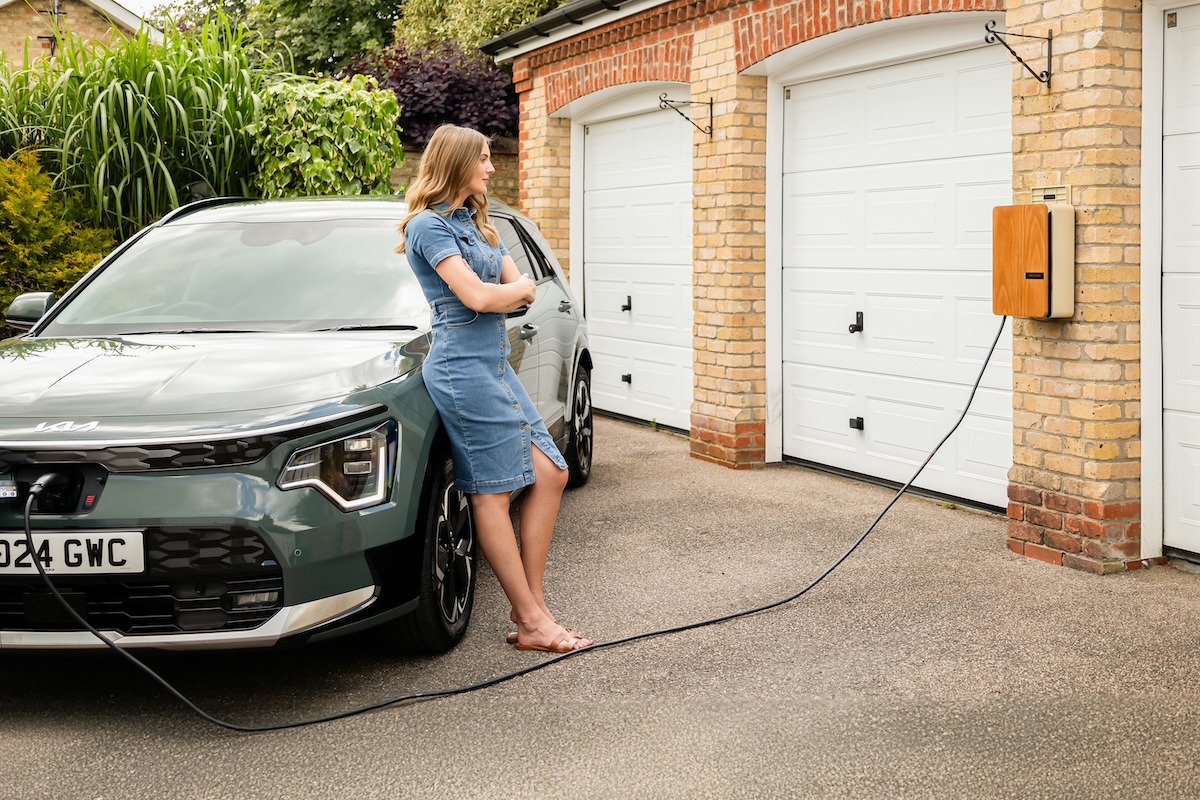9 Downsides to Electric Car Salary Sacrifice Schemes to watch out for

It all sounds too good to be true, right? There must be a catch.
With electric vehicle (EV) salary sacrifice schemes claiming to save up to 50% on a new electric car with no deposit, it’s not surprising that’s the first question people ask us.
Well, we’ve got some great news: there’s no catch. It really is as good as it sounds.
However, like any financial decision, there are still some things you need to look out for and consider before your company signs up to an EV salary sacrifice scheme - or you put your order in for your new car.
Here at loveelectric, we’re all about transparency. Here’s your checklist for what to look out for when you’re deciding on your latest employee benefit.
Transparent Pricing
At loveelectric, we don’t want any of our customers to come across hidden fees or nasty surprises. Unfortunately that isn’t the case for all salary sacrifice providers. We’re currently the only company in the UK that allows prospective drivers to get a quote directly from our public website.
No ‘price upon enquiry’, unnecessary sales calls or artificially inflated monthly payments later down the road. Just enter your salary and mileage, we’ll give you a monthly figure.
We’re so transparent about our pricing in fact, we’ve even written a whole blog detailing our pricing structure. This isn’t a typical business practice, but then we’re not a typical business. Our goal is to make the transition over to electric cars as affordable and seamless as possible.
In terms of cost to the employer, we can clarify that with one word: nothing. Introducing the loveelectric salary sacrifice scheme into a company is completely cost-neutral.
Early-Termination Policies
If you’re an employer, the early-termination policy may well be the most important aspect of any salary sacrifice scheme. It determines how much the employer is liable for if an employee is unexpectedly dismissed whilst engaged in a lease agreement.
Here’s what to look out for.
Some of the electric car schemes claim to absorb the financial risk of an employee unexpectedly leaving the company. Sounds too good to be true? It is. To make sure they’re not taking on any risk, the salary sacrifice company artificially inflates the monthly costs as soon as the lease term begins. This passes the cost onto employees, leaving your staff footing the bill ‘just in case’.
Keep an eye out for when the early termination protection kicks in, too. At loveelectric, it starts for employees after 3 months, and employers after 6 months. Nearly all of our direct competitors will only offer protection after 6 months. Some companies also place limits on how many vehicles can be returned. Even the biggest providers limit the amount of returns to 10% of total cars. With us, it’s unlimited.
For those who go on parental leave, loveelectric offers a period of 12 months rent-free for your electric car. Just a little congratulatory gift from us, to you.
Oodles of Admin
The implementation of a salary sacrifice car scheme is an exciting prospect for employees and employers alike. One of the joys of implementing a salary sacrifice scheme is the boost in employee morale. The excitement of receiving a brand new electric car, saving money on monthly outgoings and affording them the ability to drive a wholly modern car.
That’s exactly how it should stay: a joy.
Our goal is for your experience to be seamless and stress-free. Right from the preliminary stages of enquiry, our experts will guide you through the process and clearly communicate everything needed for a successful funding application. Once the scheme is up and running, we’ll even carry out ‘lunch and learns’ with your colleagues, letting everyone at the company know about what’s on offer.
So beware of salary sacrifice companies burying your staff in a mountain of paperwork. This is usually a sign that once the dotted line is signed they become surprisingly difficult to get hold of. At loveelectric, joining our salary sacrifice scheme marks the beginning of our working relationship - not the end.
Lead times
Long lead times is a problem plaguing the entire automotive industry as a whole. Semiconductor shortages, supply chain issues and increased demand have all driven the wait times for cars skyward. We’ve explored why there are such long lead times in more detail here, but the bottom line is electric cars are becoming increasingly popular and supply simply can’t keep up.
Calculating the lead time has become a central part of the buying process and is often the deciding factor for many drivers choosing their next vehicle. Delivery times often shift as manufacturers struggle to get parts or receive unexpected delays.
Long lead times can’t be avoided, but they can be mitigated. If a salary sacrifice provider owns the cars on offer, it hugely limits the stock that customers can choose from. As loveelectric is an independent broker, our customers get access to over 350,000 vehicles from our vast network of dealerships. That means more stock, more choice and a shorter wait.
Make sure your chosen salary sacrifice provider has enough stock to get your employees behind the wheel. We know this can be the most frustrating part of taking out a lease, which is why we have a section outlining the lead times for all of the electric cars we provide.

Stay Green with a BCorp
Implementing an electric car salary sacrifice scheme with a company that isn’t a BCorp is a bit like getting a vegan burger from McDonald’s. Sure, it’s a more ethical choice than meat - but it still leaves a bad taste in your mouth.
By choosing loveelectric, employers are choosing to implement the most ethical option from start-to-finish. We only offer electric cars for a start, and are one of a select few salary sacrifice providers that are BCorp pending.
Why not enhance those guilt-free, zero tailpipe emission motoring miles and see why you should join the thousands of drivers who already loveelectric.
Exclusivity
The biggest barrier of entry for any prospective driver is almost completely out of their control. The bottom line is that if a company doesn’t qualify for the scheme, then there’s no way their employees can get an electric car via salary sacrifice.
This can be both disappointing and frustrating for employees and businesses alike. We want to support every business to empower their employees to get behind the wheel of the latest electric car. But the scheme may just not be the best fit for every organisation.
There’s no definitive rules for ensuring a company is approved, however there are some general rules of thumb that can bolster the likelihood.
Nearly all businesses within our scheme have been trading for at least two years, have a clear and concise account history and are profitable.
Flexibility
With the current energy market and cost of living crisis, we’re big fans of remaining agile and flexible in regards to energy supply. ‘Full bundle deals’ on the other hand, package up an electric car, home charger and energy deal in one go.
This may work for some, but a full bundle deal leaves employees with no options if personal or financial circumstances change. Unlike others, loveelectric allows full flexibility on chargers and tariffs, giving individuals the best deal for them - even if things don’t go as planned.
Right to Own the Car
Whether or not you’d like to own your personal vehicle outright is really down to personal preference. Some people simply like to know a car is completely ‘theirs’. Others see it as a financial asset; something tangible that can be sold if needs be - although it’s incredibly rare that a vehicle will ever go up in value.
In real terms, leasing via salary sacrifice is often a far better option. It is of course much cheaper than buying outright, and not a convoluted and complicated process like a costly PCP/HP deal.
When it comes to salary sacrifice, you do not have the right to own the car. This is a critical distinction to make, as some providers may say you can buy the car at the market rate when the lease term ends. This isn’t incorrect, but the wording can be somewhat misleading.
To be clear, a salary sacrifice company has no obligation to sell you the car at the end of the term.
Companies like Octopus and Tusker may allow you to purchase the car outright at the end of the lease term, for market rate. However, the purchase value isn’t disclosed until the final month of the lease agreement making it incredibly difficult to plan practically in advance.
If the balloon payment at the end of the agreement is far higher than the employee expects, then there’s likely to be a long wait between returning their current car and getting another lease vehicle to replace it.

Cost of Insurance
There’s no war around it. Electric car insurance can be a pricey aspect of making the switch.
When taking out an electric car lease via salary sacrifice, it’s important to note that the insurance for the car can’t be personal insurance as you’d typically get for a car owned outright. We’ve previously gone into more comprehensive detail around how insurance works, but here are the basics.
As the lease technically sits with the company rather than the employee, the cover required for the driver must be fleet insurance. It’s for tax purposes, too. To be considered as an employee benefit, the electric car must be logged as being used on a fully commercial business (this term is inclusive of personal use too.)
The upshot is that this type of cover does come with a higher price tag than the personal equivalent.
To make this as cost effective as possible for all employees, we’ve partnered with LLG. Opt for our all-in-one maintenance package and as a driver you’ll get coverage for everything below - all included in the monthly cost:
- Repairs
- Maintenance
- Servicing
- Breakdowns
- Roadside assistance
- Replacement tyres for wear and tear
- Cap clean cover
- MOTs
- Accidents
Even though the price of insurance may be higher, the savings made on fuel, maintenance and servicing easily offset this increase in cost. it’s also important to note that we don’t make any additional fees on this insurance: the savings go directly to our drivers.
The Upside
Salary sacrifice still remains the most affordable and convenient way to get behind the wheel of an electric car, however as we’ve seen, not all schemes are created equal. Our goal at loveelectric is to mitigate and eliminate any downsides associated with our proposition, ensuring drivers and businesses enjoy a smooth ride on their all-electric journey.





.avif)